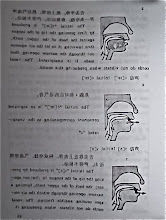Bed is an ostensibly innocuous word. For me, the monosyllable initially evokes sensations of rest, sleep, and comfort. Yet, as soon as I peel back the first layer of connotation, a torrent of complex symbols breaks through. But before I discuss these symbols, I will let the etymology—my first entry not wholly Latinate—speak for itself.
Bed has remained unchanged in form and meaning through English's history: the word is identical in Middle English while the variants bed and bedd exist in Old English. A bed for sleeping and a garden bed are present in all three major periods of the English language. The form of the word, moreover, has stayed essentially intact from its Proto-Indo-European base: *bhedh-. The meaning of this base, however, reveals bed has indeed travelled—though not as far as we may suspect at first blush. *Bhedh-, classified in the semantic field of agriculture and vegetation, denotes "to dig, pierce, or stab." One of the original senses of the word, we can see, is the sense of a ditch, pit, or hole dug in the earth.
Perhaps the cognates can reveal bed's curious itinerary to its present signification, or at least its various interrelated meanings:
- In the Celtic family, we have the Gaulish bedo-, meaning "canal" or "ditch" and the Welsh bedd, meaning "grave."
- In the Germanic family, we have the West Germanic betti, denoting "bed" in the sleeping sense, the North Germanic Boðvarr, which serves as the proper masculine noun "Bothvar" but also signifies "battle." In this secondary meaning, we may witness a preservation of the Proto-Indo-Eurpoean sense of "to stab." Proto-Germanic has the root baðja-, which, from my research, signifies "bed" in the agricultural sense. I have also come across the Proto-Germanic baðjam, which apparently signifies "a sleeping place dug in the ground." If this signification could be confirmed, then we might have a clearer understanding of the historical and anthropological development of the bed, which meaning could most effectively unite both the somnial and agricultural senses of the word.
- In the Italic family, we have the Latin verb fodio, fodere, fodi, fossus, meaning primarily "to dig, to dig (up or out)" and secondarily "to stab, pierce," just like the Proto-Indo-European base. From the verb is derived the noun fossa, meaning a "ditch, canal, moat, trench," as well as other nouns and adjectives related to digging. From these words we get the English fossa, fosse, fossil, fossorial, and perhaps fossick.
- In the Greek family, I can verify no cognates. Etymonline.com reports bothyros, meaning "pit," but I cannot locate the word in Greek dictionaries. I did find barathon, meaning "pit," and famously the pit behind the Acropolis in Athens into which convicted criminals were thrown to death. Rome had its equivalent, the Tarpeian Rock.
- The Baltic family's Lithuanian has bedù and bèsti, signifying "to dig" and "to bury"; badau and badýti, denoting "to pierce" and "to gore"; and, very interestingly, bãdas, a noun meaning "starvation."
- Old Church Slavonic in the Slavic family has bodo and bosti, "to stick" and "to prick."
- Lastly, the Anatolian family has the Hittite pád-da-i and píd-da-i, which means "to dig."
For specific cognates, thanks to etymonline.com, the University of Texas at Austin's Indo-European lexicon, my AMSCO Latin dictionary (2nd ed.), and S.C. Woodhouse's 1910 Greek dictionary via The University of Chicago Library's online format of it.



What about the sexual connotation? Seems at least passively present throughout time as well, both in its sense as a verb and in its relationship with agri- and horticulture.
ReplyDeleteAh, yes: the sexual connotation. I will be most surely addressing the sexual identity of the bed in the next post.
ReplyDeleteEtymologically speaking, perhaps one could argue for the anatomical suggestiveness of the the root verb.